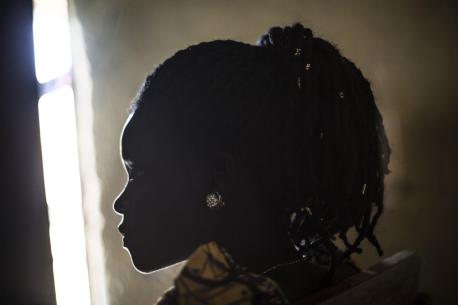
16 Days of Activism to End Child Marriage
The 16 Days of Activism Against Gender-Based Violence is a prime opportunity to galvanize efforts against injustice towards women and girls.
In our lifetime, 2020 will be remembered as the year the COVID-19 pandemic shook the world. It is also the year that marks the 100th anniversary of the Nineteenth Amendment, the 75th anniversary of the founding of the United Nations, and the 25th Anniversary of the Beijing Declaration and Platform for Action – the most progessive blueprint ever for advancing women's rights. Unfortunately, COVID-19 has stalled progress on gender equality and negatively impacted women and girls: domestic violence and child marriage are on the rise.
The 16 Days of Activism Against Gender-Based Violence — the annual UN campaign that commences on November 25 (the International Day for the Elimination of Violence against Women) and runs through December 10 (Human Rights Day) — is a prime opportunity to galvanize efforts against injustice towards women and girls. In these efforts, there must be a strong focus to end child marriage in line with Sustainable Development Goal Target 5.3 to eliminate all harmful practices.
Early marriage is harmful to children, with no exceptions
Girls living in poverty and girls from marginalized groups are most likely to be forced into early marriage. In all cases, child marriage is harmful to children. Separation from friends and family, decreased opportunities for education and economic participation, and serious health risks, such as child pregnancy, are risks only exacerbated in conflict and crisis settings.
Lessons learned from the Ebola outbreaks in West Africa and the Democratic Republic of the Congo have shown that crises disproportionately affect adolescent girls. The COVID-19 pandemic affirms this harm. Efforts taken to curb the spread of the virus like national school closures and quarantine mandates have further disrupted children’s routines, minimized social support systems and caused greater isolation leading to increased vulnerability to forced marriage and sexual exploitation.
Marriage before the age of 18 is a child rights violation
Child marriage is a violation of child rights. UNICEF believes that marriage under age 18 should be prohibited in all circumstances, and has been a leader in promoting gender equality through global partnerships for large-scale efforts.
In partnership with the United Nations Population Fund (UNFPA), UNICEF co-launched the Global Program to End Child Marriage. The program promotes the rights of adolescent girls to avert marriage and pregnancy, while empowering them to achieve their chosen futures and aspirations through education and tailored guidance.
Globally, 650 million women and girls alive today were married before their 18th birthday. In the U.S., 46 states still allow child marriage. Of the estimated 248,000 children married in the U.S. between 2000 and 2010, 77 percent were girls married to adult men. Advocating for laws and policies that protect girls’ rights is essential to targeting the root causes that sustain child marriage.
Join Zonta International and UNICEF USA's advocacy campaign to end child marriage
Stand up for the rights of girls and women by joining Zonta International and UNICEF USA’s nationwide advocacy campaign to end child marriage. Delaware, Minnesota, New Jersey and Pennsylvania have banned child marriage with no exceptions. Urge your state lawmakers to support legislation to ban child marriage in your state.
Top Photo: Forced into marriage after being sexually assaulted by a 25-year-old, Irene Asibazuyo was rescued at the age of 15, thanks to the End Child Marriage campaign by World Vision with support from UNICEF and funding from the Netherlands Government. She received training in hairdressing, and now owns and operates a hair salon in her hometown, Odramacaku, Arua District, Uganda. © UNICEF/UN0297702/Adriko
HOW TO HELP
There are many ways to make a difference
War, famine, poverty, natural disasters — threats to the world's children keep coming. But UNICEF won't stop working to keep children healthy and safe.
UNICEF works in over 190 countries and territories — more places than any other children's organization. UNICEF has the world's largest humanitarian warehouse and, when disaster strikes, can get supplies almost anywhere within 72 hours. Constantly innovating, always advocating for a better world for children, UNICEF works to ensure that every child can grow up healthy, educated, protected and respected.
Would you like to help give all children the opportunity to reach their full potential? There are many ways to get involved.





